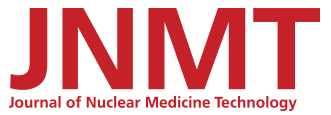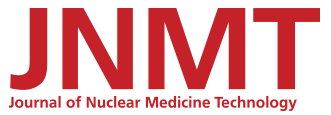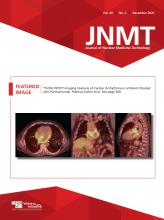Fall 2021 holds many exciting things for SNMMI-TS, particularly in the area of advocacy. The Scope of Practice (SOP) Committee, Technologist Advocacy Group (TAG), and Advocacy Committee hit the ground running at the start of the 2021–2022 year.
Dusty M. York, CNMT, PET, RT(N)(CT)
The Model Practice Act
At the June meeting of the SNMMI-TS Executive Board, the second edition of the Model Practice Act (MPA) was approved. The MPA is a legislative tool that equips our TAG representatives, state legislators, and other technologist state advocates with the information they need to help ensure that nuclear medicine technology is administered by qualified professionals. Since improper administration of ionizing radiation and radiopharmaceuticals can lead to harmful effects for individual patients and the public, it is essential to educate legislatures about nuclear medicine technology and about what certified and licensed nuclear medicine technologists do. For example, before legislation is introduced, we work with our partners at the American Registry of Radiologic Technologists and the American Society of Radiologic Technologists to make sure the draft includes pertinent nuclear medicine definitions, recommendations on the composition of a medical board, and other critical information.
This second edition of the MPA went through three rounds of review and voting within the SOP Committee. It was also reviewed by Advocacy Committee members, who had additional input. Additions included the definition of the nuclear medicine advanced associate (NMAA) and the explicit statement that “a nuclear medicine technologist is a medical professional.” We found this statement to be imperative to establish public awareness that the nuclear medicine technologist is a medical professional and an essential part of the nuclear medicine care team. Other changes to the MPA included refining the definition of an Authorized User and streamlining the patient care management section (for nuclear medicine technologists and NMAAs) to refer to the patient care management section of the Scope of Practice and Standards document. The second edition of the MPA may be found at http://ow.ly/pEfF30rYjHk.
State Advocacy
At this point in the year, Michigan and Pennsylvania are the only states left that have active legislative sessions (since their sessions are year-long). Our very own Pennsylvania TAG representative, Janice Van Dolsen, represented the society in an informational meeting on October 6 for H.B. 1440, the licensure bill. The bill is now moving forward. Michigan is also waiting for an informational meeting; Michigan TAG representative Melissa Snody will represent the society when it occurs. Michigan’s bill is not a licensure requirement; rather, House Bill 5116 will enable the Department of Labor and Economic Opportunity to certify nuclear medicine technologists who meet the requirements for registration and certification for nuclear medicine technology under the ARRT, Nuclear Medicine Technology Certification Board (NMTCB), and/or equivalent standards. Grassroots efforts are underway.
Various other states are gearing up for legislative sessions that begin in January. Alabama’s bill will be reintroduced. Although Georgia’s bill does not yet have regulatory buy-in, it does have the governor’s approval; now it must be presented to the composite medical board for feedback. A grassroots campaign for Missouri licensure will likely begin this December. A public relations campaign is underway to bring awareness to the lack of medical imaging operators standards.
The FIND Act
For the first time since SNMMI and its partners (MITA and CORAR) began advocating for the separate reimbursement of diagnostic radiopharmaceuticals in the hospital outpatient setting, we have a bicameral bill. H.R. 4479 was introduced in the House on July 16, and S. 2609 was introduced in the Senate weeks after. Before introduction, SNMMI held 3 dozen virtual fly-ins. Recently, the society has participated in numerous fly-ins as a coalition.
It has been all hands on deck for SNMMI-TS members! Various nuclear medicine technologists from the Advocacy Committee, TAG, and SOP Committee represented the society and voiced their concerns on CMS’s packaging policy—and in the past few months, SNMMI members have sent more than 400 letters of support to their members of Congress. As a result, the House bill now has 17 co-sponsors, and more are joining every week. More work needs to be done to secure co-sponsors on the Senate side, and we will look to our nuclear medicine technologists to assist us with those fly-ins. Although passage by the end of the year seems unlikely at this point due to the current political climate, we are confident in its passage next year.








